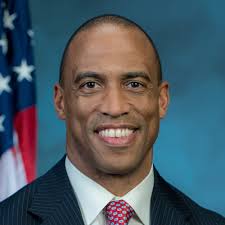Last Updated on March 12, 2025 by Bertrand Clarke
In a decisive move, the U.S. Department of Housing and Urban Development (HUD), led by Secretary Scott Turner, has rejected a hurricane relief proposal from Asheville, North Carolina, citing its inclusion of equity-based criteria that would have favored certain groups over others in the distribution of aid. The decision underscores a broader shift in federal policy under the Trump administration, which has taken a firm stance against programs rooted in diversity, equity, and inclusion (DEI) frameworks.
Turner, appointed to helm HUD following President Donald Trump’s return to office, minced no words in his critique of Asheville’s initial draft. “DEI has no place in HUD’s mission,” he declared in a statement released by his office. “Our priority is to ensure that disaster relief reaches all affected Americans fairly and efficiently, not to play favorites based on identity or ownership status.” The secretary emphasized that HUD would withhold funding from any initiative that fails to align with the administration’s directives, including a series of executive orders aimed at dismantling what critics call preferential treatment policies.
The controversy erupted after Asheville, a progressive enclave in an otherwise conservative state, unveiled its draft action plan on March 4, 2025, outlining how it intended to allocate millions in federal aid to recover from Hurricane Helene. The Category 4 storm tore through western North Carolina in late September 2024, leaving a trail of destruction that claimed at least 106 lives and displaced thousands. With $225 million in Community Development Block Grant funds allocated by HUD in January—under the waning days of the Biden administration—the city saw an opportunity to rebuild not just homes and businesses, but also its vision of a more equitable community.
Central to Asheville’s proposal was a section titled “How Programs Will Support Vulnerable Populations,” which outlined a strategy to prioritize minority- and women-owned businesses for financial assistance and reconstruction contracts. City officials argued that such measures were necessary to address longstanding disparities exacerbated by the storm, pointing to data showing that marginalized communities often face steeper hurdles in recovering from natural disasters. The plan also hinted at additional support for low-income neighborhoods, though specifics remained vague in the publicly released draft.
HUD, however, saw the proposal as a step too far. After reviewing the document, Turner’s office notified Asheville that its approach violated federal guidelines and risked derailing the entire funding package. “We’re here to help North Carolinians get back on their feet, not to fund social experiments,” Turner said, noting that the department had already greenlit aid for businesses, nonprofits, and homeowners across the state. “Asheville’s leadership was told in no uncertain terms that their plan wouldn’t fly as written. They’ve since committed to revising it to meet our standards.”
The rejection has sparked a firestorm of debate in Asheville, a city known for its liberal leanings in a state that has consistently backed Republican presidential candidates since 2012. Local advocates for the DEI provisions decried HUD’s decision as shortsighted and punitive, arguing that equitable recovery efforts are essential to prevent already disadvantaged groups from falling further behind. “This isn’t about favoritism—it’s about fairness,” said Maria Delgado, a spokesperson for a coalition of small business owners in Asheville’s historic Black neighborhoods. “The storm didn’t hit everyone equally, so why should the recovery?”
On the other side, critics of the city’s original plan hailed Turner’s intervention as a victory for impartiality. “Disaster relief should be blind to race, gender, or any other marker,” said James Hargrove, a conservative commentator based in Raleigh. “Asheville’s proposal was a textbook example of ideology trumping common sense.” Hargrove and others pointed to Trump’s executive orders, which mandate that federal agencies eliminate policies perceived as discriminatory, even if framed as efforts to uplift specific groups.
The fallout from Hurricane Helene remains a vivid memory for North Carolinians, particularly in the hard-hit Appalachian region. Floodwaters submerged entire towns, winds toppled centuries-old trees, and prolonged power outages left families scrambling for basic necessities. Asheville, a cultural hub nestled in the Blue Ridge Mountains, saw its tourism-driven economy grind to a halt as businesses shuttered and infrastructure crumbled. The $225 million from HUD was seen as a lifeline—one that city officials now must reconfigure to satisfy federal overseers.
As of March 12, 2025, Asheville is reportedly fast-tracking revisions to its action plan, though details of the updated proposal have yet to emerge. HUD has signaled its willingness to expedite approval once the city submits a version that strips out the contested equity provisions. “We want to see shovels in the ground and roofs over heads,” Turner said. “The sooner Asheville gets this right, the sooner we can deliver for its people.”
The standoff between HUD and Asheville reflects a broader national reckoning over how—or whether—equity should factor into government programs. For now, Turner’s hardline stance has set the tone: at HUD, at least, the era of DEI appears to be over. Whether that shift resonates beyond Washington, however, remains an open question as communities like Asheville grapple with the long road to recovery.










